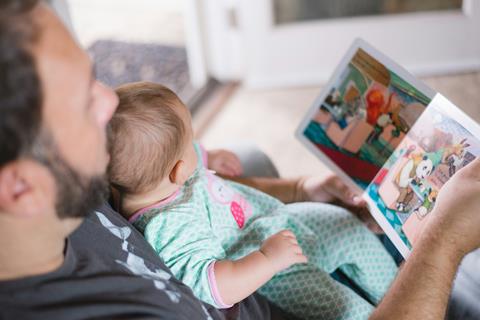Sharing both the beauty and challenge of parenthood reflects what it is to be human - and points us towards God, says Chine McDonald

I’d be embarrassed to reveal the amount of hours I’ve spent scrolling through pictures of my children. I’m obsessed with them. The love I feel for them is indescribable. Nothing compares to snuggling up with them, bearing witness to their minds expanding, and hearing them tell me they love me. There are times when I feel so much love for them that I could burst.
“Children are a gift from God”, as we read in Psalm 127 (TLB). So why is it that when I’m out in public or talking to other mum friends, I don’t share the joy, but instead talk about how tired I am, complain about the mental load of having children or having to race home for pick-up when I’d much rather stay for drinks with my team?
Since the release of my book Unmaking Mary: Shattering the myth of perfect motherhood (Hodder & Stoughton) much of my year has been spent talking about how difficult and imperfect the realities of motherhood are. I’ve encouraged people to share these negatives rather than put forward happy-shiny, sepia-tinged images of perfect motherhood. But maybe what we need is a bit of balance: an encouragement to share both the wonder and the challenge of parenting.
There are many reasons why I personally find it easier to talk about the challenges. First, I’m Brit(ish). There is something about our culture that nudges us towards the negative. We complain about the weather, we complain when the trains are late, we complain if people aren’t queuing in the correct fashion and we complain about having kids. The opposite – to go on and on about how much we love our children, how great parenting is, how our children are unfussy eaters, how our children are geniuses – is very un-British. Nobody likes a show-off.
There is also something bonding in the complaining. I find that talking about the shadow side of parenting has helped forge alliances and strong friendships with other mums and dads.
There are also sensitive reasons why we do this. Many parents are painfully aware of friends, colleagues and family members who want children, but do not or cannot have them. It feels cruel to talk about how amazing it is when those who long desperately for what we have might be in earshot. Those who experience involuntary childlessness, pregnancy loss and child mortality might prefer us to not talk about the positives but, for others, hearing us complain about being parents might also be difficult.
Whatever the reasons, this cultural tendency to moan about being parents is perhaps what might be contributing to putting young people off wanting to have children of their own. In 2022, a viral list circulated on TikTok containing 350 reasons not to get pregnant. The sparse ‘for’ list included the possibility that children might be cute.
The love I have for my children could be described as transcendent. There is nothing like looking into your baby’s eyes. I think our culture – particularly for those who have grown up within secular contexts – does not have the language to describe the numinous, the experiences of motherhood that can feel otherworldly, which I believe are the spark of God’s presence.
Sociologist Peter Berger suggests that a mother’s love for their child is one of the ‘signals of transcendence’ in societies that claim to be secular. Because of this lack of language, it can feel much easier in such contexts to reach for the mundane: lack of sleep, piles of washing, the juggle. But the beauty of parenthood is perhaps that it is all of these things, reflecting the texture of what it is to be human.
Yes, it is mundane, painful, complicated, but it is also wondrous, joyous, beautiful; it is profane and it is sacred, and so too is our God-breathed life.
Theos is currently undertaking research into the socio-political and spiritual change that happens in motherhood
For help and inspiration in raising faith in the next generation visit premiernexgen.com






































No comments yet